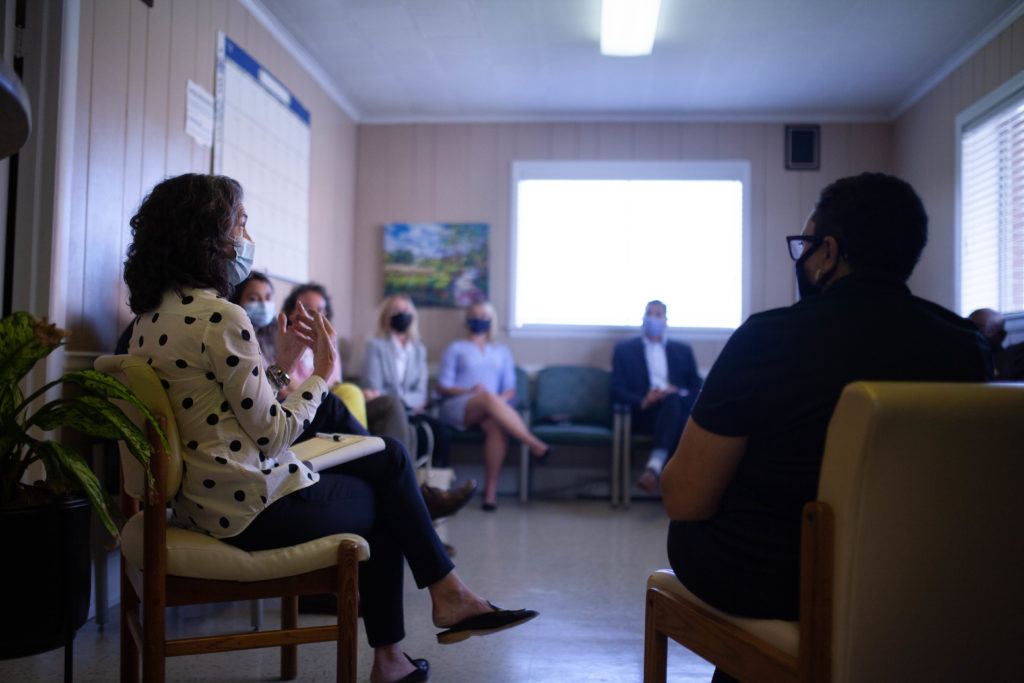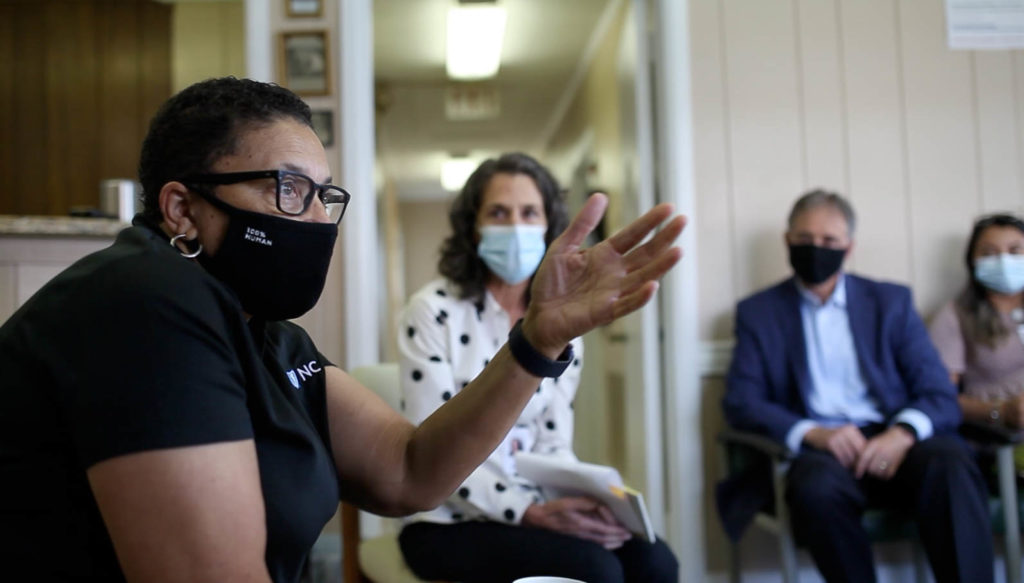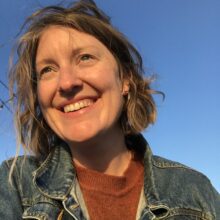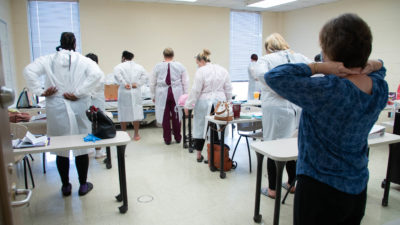|
|
EdNC joined Blue Cross and Blue Shield of North Carolina on their “Extra Miles” listening tour in Lenoir and Pitt counties. Blue Cross NC is traveling to visit education and health care systems along with other anchor institutions across the state to better understand the barriers to better health communities are facing and meet the people working to address them.
Surry Medical Ministries is a “private, non-profit, free primary health clinic, serving needs of the medically indigent in greater Surry County.” The facility is tucked between the mountains in Mount Airy, a 40 minute drive from Winston Salem.
The small staff of health care providers currently serves about 1,000 low-income or uninsured individuals. This time last year, they served roughly 640 patients. The number of patients they see on an average basis has increased significantly with the help of telehealth services.
Surry Medical Ministries strives to fill the gap between under-resourced communities and institutions with an overflow of financial resources. Lack of monetary aid for rural clinics brought challenges during the pandemic. The clinic’s staff has worked tirelessly to host COVID-19 vaccination clinics with transportation for those in need, provide educational information for non-English speaking residents, and offer COVID testing and support for those in quarantine.
Nancy Dixon, Surry Medical Ministries President and Director, worries about patients continuum of care. She and her team are hyper aware of the challenges individuals face when seeking medical expertise in rural settings.
“There is no safety net,” Dixon said. “There is no such thing for people who are on the lower end of the socioeconomic spectrum.
Dixon knew the need for private access to medical providers would only grow throughout the pandemic.
“When COVID started, we realized how important [telehealth] was going to be,” she said.


As the farm workers’ season began, the clinic knew reaching patients virtually would be critical. Patients must make appointments to be seen, and the clinic has a limited schedule of open hours on Tuesday and Thursday of each week. Navigating the constrained hours can be difficult for farmworkers, and reaching isolated communities during the pandemic would prove to be difficult due to a small staff and limited resources. Telehealth became the bridge providers needed in order to connect with their community.
Surry Communications, a broadband provider in the area, was on board as soon as the issue was brought to their attention. The company asked which locations would best serve the community and handled the cost of construction. Within weeks, two farms were outfitted with fiber internet and residents were able to connect with health care providers in a private setting and receive information pertinent to their specific needs.
Dixon and her team have seen an influx of patients throughout 2021 with hundreds of new patients seeking medical care. One Sunday per month, they open the clinic doors to provide educational presentations about COVID precautions and answer questions about the vaccine. The clinic has administered the vaccine to just under 1,000 people alone.


Dixon credits her diverse staff with making their patients more comfortable and helping meet their individual needs.
“We know our patients so well,” she said. “It’s really great when you have a diverse staff. If somebody looks like you, if you’re Black. … If you’re someone who speaks Spanish, to have someone to really talk with you about [the vaccine], to talk about that. It means something. That is vital. It’s that one-on-one.”
The pressure is intense for staff and volunteers and can lead to burnout. The increase in demand for health care by new patients has put a strain on the clinic, which also saw fewer volunteers during the pandemic.
“What’s contributing to the burnout is that demand exceeds capacity,” Dixon said.
She explained that the clinic could limit the number of patients they were able to see or continue to provide care to more individuals and face financial limitations. The clinic is funded through donations and grants.
“We couldn’t in good conscience say that we’re not going to accept someone,” she said. “It’s against what we believe.”



